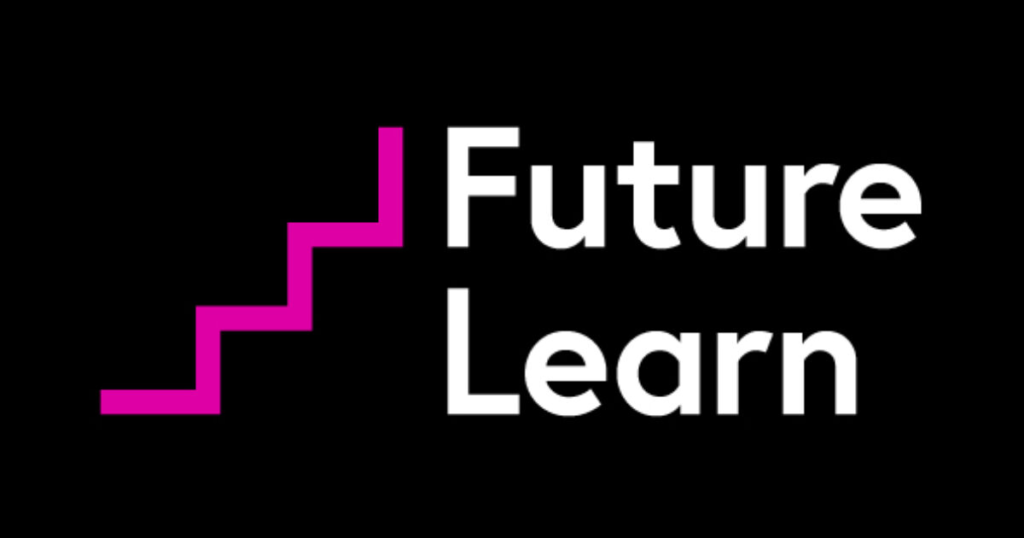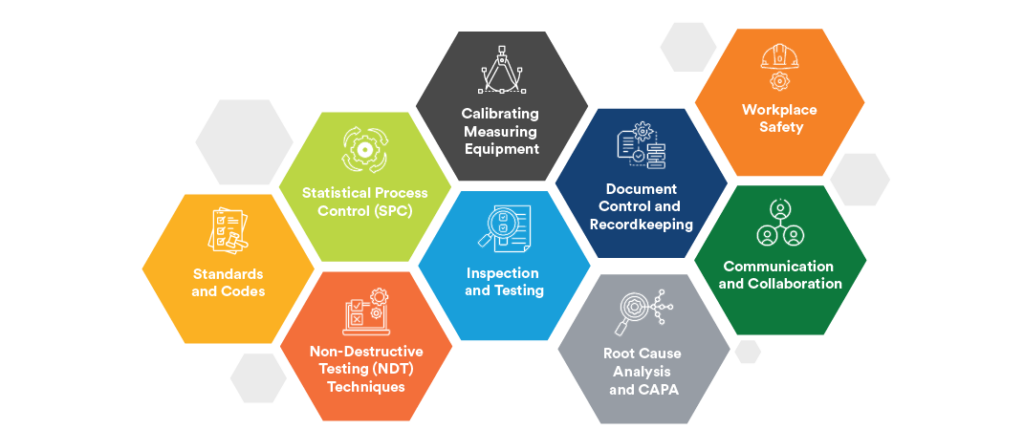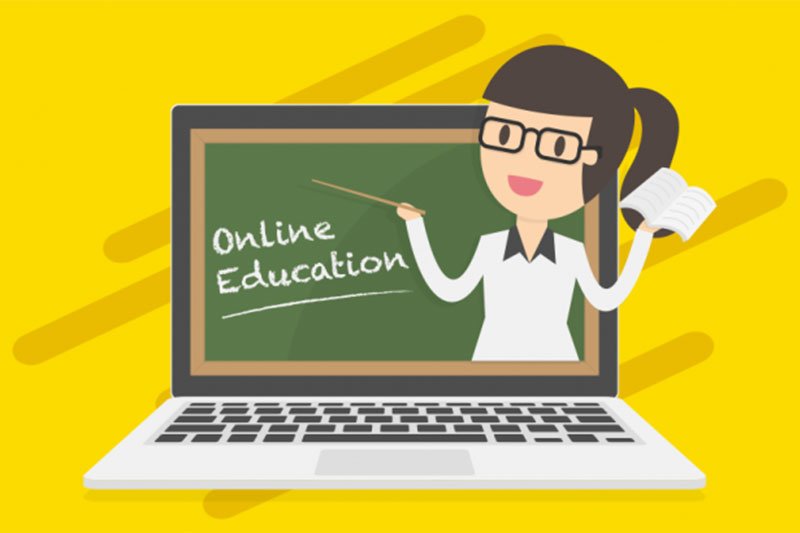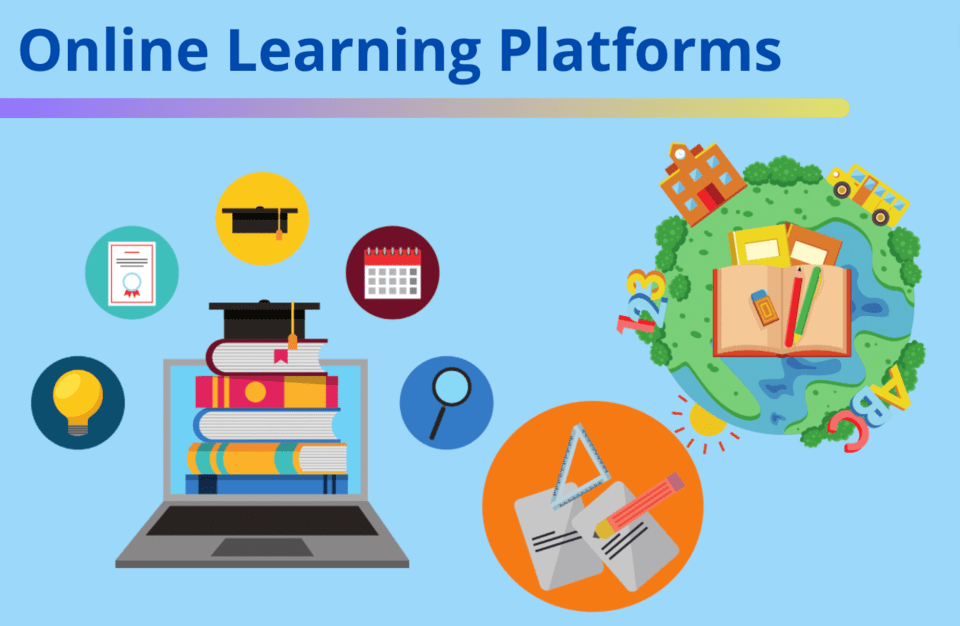The digital transformation of education has opened up numerous opportunities for students around the world. Traditional learning environments, which once required costly textbooks, classroom sessions, and expensive tuition fees, have now been complemented—or, in some cases, replaced—by free online learning platforms. These platforms provide students with the ability to access quality education anytime, anywhere, at no cost.
As the demand for flexible, accessible education rises, students are increasingly looking for the best free online learning platforms to enhance their skills, broaden their knowledge, and prepare for a rapidly changing job market. However, with so many online resources available, it can be challenging to determine which platforms are truly valuable.
This article will delve into some of the best free online learning platforms for students, exploring the features, courses offered, and benefits they provide. By the end, students will have a comprehensive understanding of which platforms best align with their learning goals and how they can take full advantage of these tools.
Key Takeaways
- Free Learning Opportunities: Free online platforms provide students with the ability to access top-tier courses without paying hefty tuition fees.
- Variety of Courses: From technology and business to arts and humanities, free platforms offer courses across a wide range of subjects, providing flexibility and depth.
- Flexible Learning Schedules: Many platforms allow students to learn at their own pace, making it easier for students to balance education with other responsibilities.
- Quality Education from Reputable Institutions: Platforms like Coursera, edX, and MIT OCW provide access to courses from prestigious universities, enhancing the credibility of the courses.
- Career Development: Platforms like Alison and Udemy focus on skill-building, making them ideal for students looking to improve their job prospects and develop practical abilities.
Why Choose Free Online Learning Platforms?

Before we dive into the specific platforms, it’s important to understand the benefits of opting for free online learning.
- Cost-Effective: The most obvious advantage of free online platforms is that they eliminate the need for tuition fees, textbooks, and other associated costs that can burden students. This makes education accessible to a wider audience, particularly those with financial limitations.
- Flexible Learning: Free online learning platforms allow students to learn at their own pace. Whether you’re looking to learn new skills for career advancement or explore a personal interest, these platforms offer the flexibility to do so on your own time.
- Access to a Variety of Courses: Free online platforms provide access to a wide range of subjects—from coding and data science to arts, literature, and history. This breadth of offerings allows students to explore a variety of fields and gain cross-disciplinary knowledge.
- Learn from Top Universities and Experts: Many free platforms are partnered with reputable universities, colleges, and industry professionals, giving students the chance to learn from top-tier instructors without paying high tuition fees.
- Skill Development for Career Advancement: Whether you’re aiming to gain practical skills for a new job or looking to upgrade your qualifications, free online courses allow you to expand your skill set and become more competitive in the job market.
The Best Free Online Learning Platforms for Students
Now that we understand why free online learning platforms are a great option, let’s take a closer look at the best platforms currently available for students.
1. Coursera
Coursera is one of the most well-known online learning platforms, offering courses from top universities and institutions. While Coursera does have paid options, many of its courses can be audited for free, which allows students to access course materials without paying for a certificate.
- Key Features:
- Offers courses from prestigious universities like Stanford, Yale, and the University of London.
- Courses span a wide range of subjects, including technology, business, humanities, health, and social sciences.
- Interactive features such as peer assignments and quizzes enhance learning.
- Some courses offer free certificates after completing assignments.
- Why It’s Great: Coursera’s partnerships with leading universities make it one of the most prestigious platforms for students seeking high-quality education at no cost.
2. edX
edX is another leading online learning platform that offers high-quality courses from top universities, including Harvard, MIT, and UC Berkeley. Like Coursera, edX allows students to access courses for free (with the option to pay for a certificate).
- Key Features:
- Offers over 2,500 courses in a wide range of fields such as data science, business, engineering, and liberal arts.
- Many courses are designed as MicroMasters programs, which can provide advanced certifications or college credit when completed.
- Free course access with the option to earn a certificate for a fee.
- Students can engage in interactive exercises, discussions, and peer reviews.
- Why It’s Great: With edX, students gain access to courses from globally recognized institutions without the financial burden. The platform’s extensive catalog of subjects also gives learners a lot of flexibility in choosing courses.
3. Khan Academy
Khan Academy is a nonprofit educational platform that offers comprehensive, free courses in a variety of subjects, primarily focusing on K-12 education, though it also has materials suitable for college students.
- Key Features:
- Offers a vast library of video lessons, quizzes, and exercises across subjects such as math, science, economics, history, and arts.
- Focuses on building fundamental knowledge in subjects that are foundational to higher education.
- Features personalized learning dashboards to track progress and set goals.
- Completely free with no hidden fees or premium content.
- Why It’s Great: Khan Academy’s clear and concise teaching style, combined with its diverse range of subjects, makes it an excellent choice for students looking to reinforce their academic foundation.
4. Udemy
Udemy is a popular platform for professional development, offering a wide range of courses across various disciplines. While many of its courses require a fee, there is also a large selection of free courses available, particularly in the areas of technology, business, and personal development.
- Key Features:
- Offers both free and paid courses in subjects like programming, marketing, photography, and personal growth.
- Students can access course materials, quizzes, and assignments at their own pace.
- Some courses are taught by industry professionals, making them highly practical and relevant to current job markets.
- Certificate of completion available for most paid courses.
- Why It’s Great: Udemy offers courses that are practical and job-focused, allowing students to build skills that can immediately be applied in their careers.
5. Future Learn

FutureLearn is a UK-based online learning platform that partners with universities and cultural institutions to provide free courses in various subjects. While certificates and advanced features require payment, students can access course content for free.
- Key Features:
- Offers a variety of free online courses in fields such as healthcare, business, literature, and technology.
- Includes engaging features like peer discussions, quizzes, and assignments to encourage participation.
- Courses are designed for learners at all levels, from beginners to advanced.
- Provides an option to upgrade for a certificate or to access additional resources.
- Why It’s Great: FutureLearn’s social learning approach encourages students to engage with each other, making it ideal for collaborative learners.
6. MIT Open Courseware (OCW)
MIT OpenCourseWare (OCW) is an initiative by the Massachusetts Institute of Technology that provides free access to course materials from MIT’s vast catalog. While the platform doesn’t offer structured lessons or certifications, it provides an opportunity for self-guided learning with access to lecture notes, assignments, and exams.
- Key Features:
- Provides access to over 2,400 MIT courses, including materials from diverse fields such as engineering, computer science, business, and humanities.
- No enrollment or registration is required.
- Courses are often structured with lectures, readings, and assignments, mimicking the format of traditional MIT classes.
- Why It’s Great: MIT’s reputation for excellence in education makes OCW an invaluable resource for students seeking a rigorous and academic approach to learning.
7. Alison
Alison is a free online learning platform that offers courses in a variety of fields such as business, technology, health, and language. Although certificates and diplomas are available for a fee, the courses themselves are completely free to access.
- Key Features:
- Offers over 1,000 free online courses, including diplomas and certificate programs.
- Focuses on skill-based learning that is relevant to professional development.
- Provides assessments and quizzes to ensure understanding.
- Tracks progress and rewards achievements with certification.
- Why It’s Great: Alison’s focus on career development and skill-building makes it an excellent resource for students looking to develop practical, job-ready skills.
8. Skillshare (Free Trial)
Skillshare is a popular platform designed to cater to creative learners, offering free trials and premium options for students interested in subjects like art, photography, design, writing, and entrepreneurship. Although Skillshare operates on a subscription-based model, it offers a limited number of free courses for those who cannot afford the full membership.
- Key Features:
- Free access to a limited selection of courses on various creative disciplines.
- Wide array of courses in design, animation, illustration, filmmaking, photography, and marketing.
- Includes project-based learning and community interaction, where students share their progress with the community.
- Membership required to unlock full access to all premium content and features.
- Why It’s Great: Skillshare’s creative-focused courses offer hands-on projects that enable students to apply what they learn directly to real-world activities. While free courses are limited, the content is highly valuable for anyone looking to enhance their creative skills.
9. Codecademy
Codecademy is a specialized platform that focuses on teaching programming and coding languages. Although it offers a paid subscription model, Codecademy provides a free plan that allows students to learn the basics of coding, including languages like Python, JavaScript, HTML/CSS, and SQL.
- Key Features:
- Interactive coding lessons that allow students to practice coding directly in their browser.
- Covers a wide variety of coding languages and skills, from web development to data science and machine learning.
- Offers quizzes and challenges to test comprehension.
- The free plan includes basic courses, but advanced features and certifications require a premium subscription.
- Why It’s Great: For anyone looking to enter the tech field, Codecademy offers an excellent starting point for free, hands-on coding education. It’s interactive and ensures that learners are applying what they learn in real-time.
10. Google Digital Garage
Google Digital Garage is a free platform aimed at helping students, job seekers, and entrepreneurs develop digital marketing and data analysis skills. With its focus on online business growth, marketing strategies, and data-driven decisions, it is an excellent resource for anyone looking to develop practical business skills in today’s digital world.
- Key Features:
- Includes comprehensive free courses on topics such as digital marketing, data analysis, career development, and e-commerce.
- The Google Digital Garage Certificate provides a valuable credential that can be added to resumes.
- Offers expert-led lessons, quizzes, and hands-on exercises.
- The courses are designed by Google, ensuring high-quality content from an industry leader.
- Why It’s Great: Google’s reputation as a leader in digital marketing and online business development ensures that the courses are both highly relevant and practical. Students looking to advance in the digital economy will find these courses extremely valuable.
11. OpenLearn (by The Open University)
OpenLearn is the Open University’s free learning platform, offering a wide range of free courses across diverse disciplines. The platform provides access to course materials, video tutorials, and reading content, helping students to expand their knowledge across a variety of academic and practical fields.
- Key Features:
- Offers over 1,000 free courses across subjects such as education, health, social care, arts, and technology.
- Access to course materials, videos, and articles free of charge.
- Some courses are accompanied by free certificates upon completion.
- Provides a variety of course formats, including self-paced study, interactive quizzes, and video lectures.
- Why It’s Great: OpenLearn’s extensive library of free courses makes it an excellent choice for learners looking to explore a broad range of subjects. The Open University’s association ensures the courses are academically rigorous and well-structured.
12. LinkedIn Learning (Formerly Lynda.com)

While LinkedIn Learning offers a paid subscription, it provides a one-month free trial, during which students can access its library of professional development courses. This is especially valuable for those looking to improve their career prospects by learning skills in fields like business, technology, marketing, and management.
- Key Features:
- Offers over 16,000 courses on a variety of subjects, including software development, digital marketing, leadership, and data analysis.
- The content is geared toward professionals, making it an excellent resource for those looking to enhance their workplace skills.
- Provides access to learning paths, which are curated collections of courses designed to guide learners through the process of mastering a specific topic.
- At the end of each course, learners receive a certificate of completion that can be added to their LinkedIn profiles.
- Why It’s Great: LinkedIn Learning’s integration with LinkedIn allows you to share your certifications with your professional network, which can be a great boost for career opportunities.
13. Saylor Academy
Saylor Academy is a nonprofit organization that offers free college-level courses in various fields such as business, computer science, mathematics, and the arts. Students can earn a free certificate upon successful completion of each course. While Saylor Academy does not offer degree programs, its courses can be a great supplement for students seeking to enhance their academic knowledge or pursue independent learning.
- Key Features:
- Offers more than 100 self-paced, college-level courses.
- Provides free certificates of completion.
- Some courses are designed to prepare students for real college credit through partnerships with various accredited universities.
- Includes assessments such as quizzes, assignments, and exams to ensure understanding of the course content.
- Why It’s Great: Saylor Academy’s college-level courses are ideal for students looking to deepen their knowledge without the burden of tuition costs. It also offers the potential to earn college credits through certain exams.
Additional Considerations for Choosing the Right Platform
Selecting the right platform depends on your individual learning preferences, goals, and the type of knowledge you are seeking. To make the most of these resources, here are a few considerations to keep in mind:
1. Course Content Quality

While there are many free platforms available, not all of them provide high-quality educational material. It’s essential to evaluate the content’s depth, the credibility of the course provider, and the qualifications of the instructors. Platforms like Coursera and edX, which partner with top universities, are well-known for their high educational standards.
2. Personal Learning Preferences
Some students thrive in self-paced, video-driven learning environments, while others prefer more interactive or project-based learning. Understanding your preferred learning style will help you choose the platform that offers the most suitable courses for you. If you enjoy practical, hands-on learning, platforms like Skillshare and Codecademy may suit you best, whereas students who need structured academic content might benefit from platforms like edX or Khan Academy.
3. Certification and Credentials
While many platforms offer free courses, not all offer a certificate upon completion. If certification is important to you, be sure to choose platforms like Coursera, edX, and Alison, which provide certificates upon completing their courses. On the other hand, if you’re learning for personal development or skill enhancement, certifications may not be a necessity.
4. Community and Support
A supportive learning community can significantly enhance the learning experience, especially for students studying independently. Platforms that provide forums, peer reviews, and live discussions (like Coursera or FutureLearn) allow you to engage with fellow students and instructors, fostering a sense of connection and collaboration.
5. Access to Resources and Tools
Check whether the platform provides access to supplementary resources, such as textbooks, assignments, quizzes, or software tools, that will support your learning. Platforms like Codecademy and Google Digital Garage provide hands-on practice, which can help reinforce theoretical knowledge.
Also Read: How Can Online Learning Classes Improve Student Engagement And Participation?
Conclusion
Free online learning platforms have revolutionized access to education, providing students worldwide with the tools to enhance their knowledge and skills without the financial burden. From platforms offering university-level courses like Coursera and edX to skill-based learning platforms like Alison and Udemy, there is an online learning option for every student’s needs.
Whether you’re aiming to boost your career prospects, explore new areas of interest, or simply enhance your academic knowledge, these platforms offer a wealth of opportunities. With the right approach and discipline, you can achieve significant learning milestones, all from the comfort of your home.
FAQs
Are free online courses as valuable as paid ones?
Yes, free online courses offer high-quality content from reputable institutions. However, paid options typically provide certificates, assessments, and additional features, which may be more beneficial for career advancement.
Do I get a certificate for completing free courses?
Some platforms like Coursera and edX allow students to earn a certificate for completing courses, but these often come at a cost. However, you can still access course materials for free.
How do I know if the course is right for me?
Most platforms provide course descriptions, syllabi, and reviews from past students. You can also preview a course to determine if it aligns with your learning goals.
Can I learn at my own pace on these platforms?
Yes, many platforms, including Coursera, edX, and Khan Academy, offer self-paced learning, allowing you to progress through the material at your convenience.
Are these courses recognized by employers?
While free courses typically do not carry the same weight as a formal degree, they can demonstrate to employers that you are proactive about learning and developing new skills.
Do I need to pay for a certificate on platforms like Coursera or edX?
You can access course content for free, but if you want a certificate of completion, you will need to pay a fee on platforms like Coursera or edX.
Are there any hidden fees on these platforms?
Most of the platforms listed offer free access to course materials, but some may have hidden fees for certificates, assignments, or additional features. Always check the details before committing.




